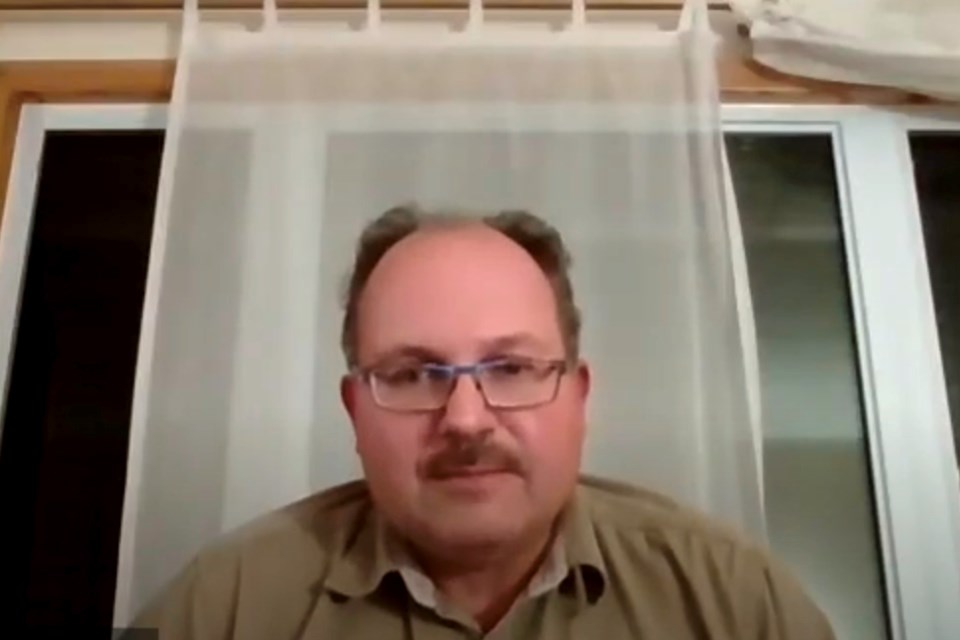The Ontario Ombudsman, Paul Dube, recommended to Bonfield’s council they update their procedural by-law “to clearly establish the authority and procedures for removal of the deputy mayor.”
Dube’s report, dated November 18th, and discussed during the December 14 council meeting, came in response to a complaint to the Ombudsman’s office following a November 20th, 2020, meeting.
During that meeting last fall, discussion turned to ending the local state of emergency that Mayor Randall McLaren had implemented on March 25, 2020.
“The Covid-19 pandemic is the reason this emergency has been declared,” Mayor McLaren explained in his announcement.
See: Bonfield declares state of emergency
Sylvie Beaudoin was Bonfield’s deputy mayor at the time and was advocating to lift the state of emergency last November, noting it could be done by a vote of council, or a signature from the Mayor or deputy mayor.
“I don’t see any downside to stay in a state of emergency,” Mayor McLaren told Beaudoin, noting he did not want Bonfield residents “to let their guard down.”
Beaudoin mentioned “that terminating the state of emergency does not remove provincial mandates” regarding public health measures, however, McLaren remained unconvinced.
“I think we need a discussion about the authority of the deputy mayor and even if that has any validity in this municipality anymore,” he said.
He cited the Municipal Act, noting “consent is required by the mayor to have a deputy-mayor. And I’ve been of the opinion for a few months now that I’d like to withdraw that consent.”
Mayor McLaren acknowledged that appointing Beaudoin as deputy mayor after the 2018 election followed council’s procedural bylaw, but “I must state right now that consent is withdrawn,” for that decision.
He admitted the matter “should have been handled in an in-camera session,” before announcing “going forward from 9:38 p.m., on November 10th, 2020, the township of Bonfield no longer has a deputy mayor position occupied by any councillor.”
“I just decided that,” the mayor added. “I’ve withdrawn my consent under the municipal act.”
The decision created waves around the table, and a complaint was made to the Ombudsman.
In June 2021, councillor Beaudoin resigned from Bonfield’s council, citing a “toxic work environment” and noted the mayor “had no authority to remove my deputy mayor status, as I was appointed by resolution for the term of council.”
See: Bonfield’s former deputy mayor resigns. Cites 'toxic work environment' as one of the reasons
Returning to the meeting last Tuesday, the Ombudsman’s letter explained that the Municipal Act “does not specify that the head of council can unilaterally remove a deputy mayor, once appointed by council.”
“The township’s procedural by-law does not currently indicate a process for removal from this position,” Dube’s report explains.
The decision to remove the deputy mayor, and the role of deputy mayor “should have been made collectively by council.”
Council has accepted the Ombudsman’s report and will work to revise their procedural by-law to include clear rules regarding the way to go about removing a deputy mayor.
“Council should review their procedural by-law” the mayor said, “and insert language into it as to whether or how a deputy mayor is appointed, and it should speak to the head of council granting consent,” for that position.
McLaren also noted the Ombudsman’s office “encouraged me to communicate to the public at large how that process happened and why it happened, and in the future that we would be encouraged to explain our processes better.”
In that spirit, the mayor plans to circulate a newsletter to residents early in the new year “speaking to the matter to close it out and explain how that situation came to pass.”
David Briggs is a Local Journalism Initiative reporter who works out of BayToday, a publication of Village Media. The Local Journalism Initiative is funded by the Government of Canada.



